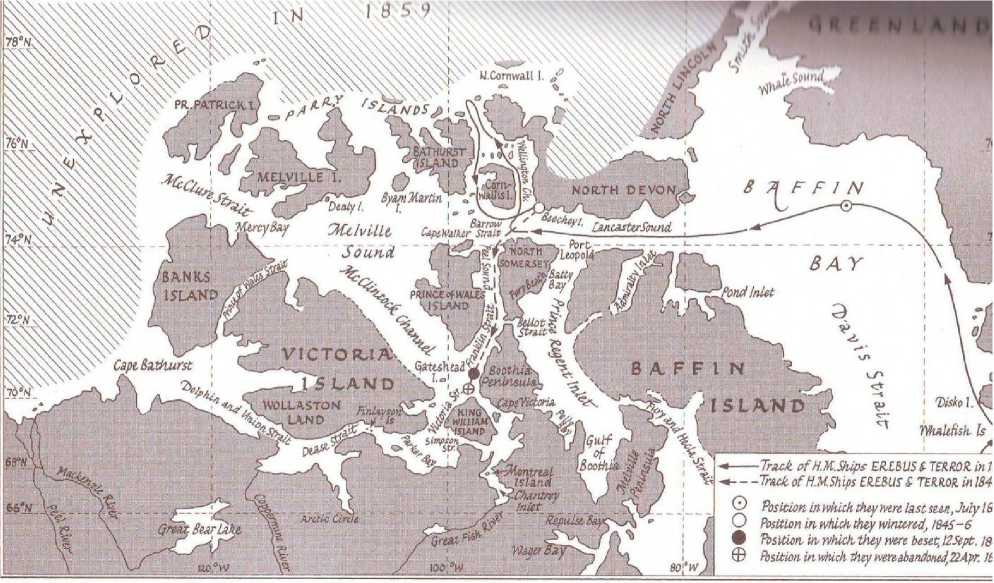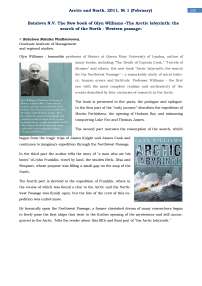New Book of Glyn Williams “The Arctic Labyrinth: The Quest for the North-west Passage”
Автор: Batalova N.V.
Журнал: Arctic and North @arctic-and-north
Рубрика: History: new publication
Статья в выпуске: 1, 2011 года.
Бесплатный доступ
Короткий адрес: https://sciup.org/148320538
IDR: 148320538
Текст статьи New Book of Glyn Williams “The Arctic Labyrinth: The Quest for the North-west Passage”
Glyn Williams - honorable professor of History at Queen Mary University of London, author of
Glyn Williams is Emeritus Professor of History at Queen Mary. I nivvrnily of l»ndon. one-lime General Editor of the Hudson’s Buy Record Society and former President of the Hakluyt Society. I li- is the author of a group of remarkable and original accounts of major naval voyages, including Anson’s voyage around the world (The Prize of AH the Oceans^ and Arctic exploration in tin* eighteenth century ( Voyages of Delusion).
many books, including "The Death of Captain Cook," "Travels of illusion" and others. His new book "Arctic labyrinth: the search for the Northwest Passage" - a remarkable study of naval history, human errors and fortitude. Professor Williams - the first one with the most complete realism and authenticity of the events described by four centuries of research in the Arctic.
The book is presented in five parts, the prologue and epilogue. In the first part of the "early journey" describes the expedition of Martin Forbishera, the opening of Hudson Bay and swimming conquering Luke Fox and Thomas James.
The second part narrates the resumption of the search, which began from the tragic trips of James Knight and James Cook and continues to imaginary expedition through the Northwest Passage.
In the third part the author tells the story of "a man who ate his boots" of John Franklin, travel by land, the studies Beck, Disa and Simpson, whose purpose was filling a small gap on the map of the North.
The fourth part is devoted to the expedition of Franklin, where in the course of which was found a clue to the Arctic and the Northwest Passage was finally open, but the fate of the crew of this expedition was unfortunate.
By heroically open the Northwest Passage, a former cherished dream of many researchers began to freely pass the first ships that went to the further opening of the mysterious and still unconquered in the Arctic. Tells the reader about this fifth and final part of "the Arctic labyrinth."
The first expeditions of the sixteenth century were carried out on small boats, not adapted for walking in rough conditions. Many of them ended in the death of the vessels and their crews. Williams describes, with some persistence and courage of the researchers went to the risky, often ter-

The Northwest Passage after McClintock’s Voyage rifying sea journey to pave the way to the Arctic. They were waiting for the unimaginable horrors of the shipwreck of all, mass starvation, frostbite, even cannibalism.
The reader will be able to plunge into a fascinating story, go through all the difficulties and dangers faced heroes of the story, their ingenuity to try to circumvent or break the ice nightmarish set of barriers in the maze of infinite fertile islands.
As a source, Glyn Williams uses many documents of the Parliament of Great Britain, Admiralty records and other archival material, journals, private letters.


